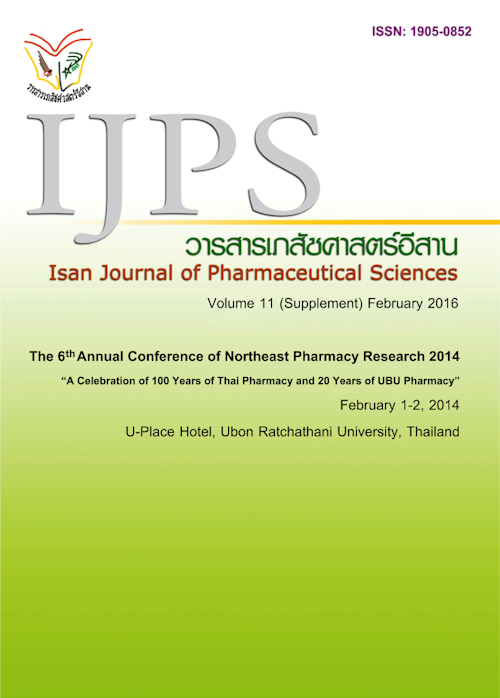Neuroprotective Effects of Five Melatonin Derivatives
Main Article Content
Abstract
Introduction: Alzheimer disease (AD) is a progressive degenerative disorder characterized by the presence of amyloid deposits, neurofibrillary tangles and neuronal loss. Emerging evidence indicates that antioxidants could be useful either for the prevention or treatment of AD. Several studies showed that melatonin may play an important role in AD as an antioxidant and neuroprotector. Recently, five melatonin derivatives including melatonin, melatonin acetate, nitro-melatonin, naphthoyl melatonin and benzoyl melatonin were developed. Thus, the aim of our study was to investigate the effects of these five melatonin derivatives on neuroprotective activity and on the improvement of cognitive impairment induced by scopolamine in mice. Materials and Method: The five melatonin derivatives were screened for their antioxidant activity through the in vitro ABTS method. The protective effect against hydrogen peroxide- or beta amyloid-induced neuronal cell damage was also investigated by MTT assay in neuroblastoma cell (NG108-15) and astroglioma cell (C6), respectively. For investigation of their mechanism, western blotting analysis was performed to assess protein expression. Moreover, the effect of melatonin acetate on the improvement of memory deficit in mice was evaluated by 3 behavioral models including Morris water maze, Y-maze and object recognition test. Results: The results exhibited that all five derivatives showed an ability to scavenge ABTS radical with IC50 values ranging from 28.11 to 62.67 mM. Naphthoyl melatonin possessed the highest potency with IC50 value of 28.11 + 2.61 mM. For the neuroprotection, melatonin, melatonin acetate and nitro-melatonin exhibited protective effect against both hydrogen peroxide- and beta-amyloid-induced cell damage. The result from western blotting analysis indicated that melatonin acetate inhibited beta-amyloid-induced cell death by inhibiting AKT phosphorylation and cleavage of Parp-1 and Caspase-3. Moreover, melatonin acetate, the highest potency for neuroprotection, exhibited an ability to improve both short-term and long-term memory deficit in mice induced by scopolamine. Conclusion: All results indicated that melatonin derivatives could be a promising candidate for treatment of Alzheimer’s disease.
Article Details
In the case that some parts are used by others The author must Confirm that obtaining permission to use some of the original authors. And must attach evidence That the permission has been included


